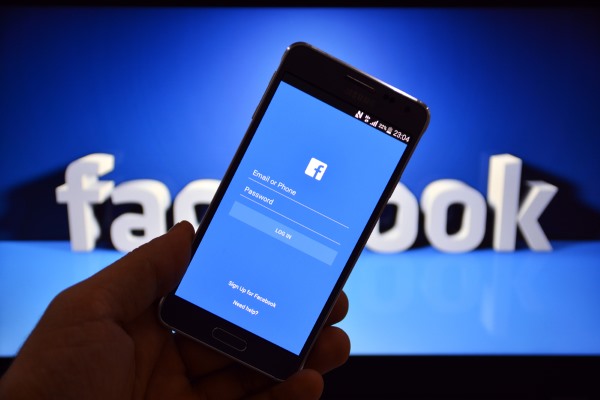
SWIFT hack affects 12 more banks
Earlier reports of a couple of banks using the SWIFT (Society for Worldwide Interbank Financial Telecommunication) system being hacked are now paired with new reports saying that additional 12 banks using the same system might have fallen victim to the attack.
According to security researchers FireEye, which have been investigating the matter, "numerous" other banks have contacted them, including banks from the Philippines, and New Zealand. Even though the majority of these attacks were thwarted, approximately $81 million made it to the Philippines and ended up at casinos, where its trail is lost.

Lazarus may be responsible for Bangladesh Central Bank hack
The group that tried to steal a million dollars from the Vietnamese Tien Phong Bank, managed to steal $81 million from Bangladesh's Central Bank, and managed to steal $12 million from a bank in Ecuador, also attacked a bank in the Philippines.
However, it remains unclear if the group actually managed to steal any money from this bank or not. What we do know, though, is that all these attacks seem to be pointing at the same hacking group, known as Lazarus.

Financial services believe blockchain is the biggest innovation since the Internet
Blockchain is the most important innovation since the creation of the internet, almost two thirds (60 percent) of global financial services retailers with some knowledge of the technology said.
That’s a bold claim.

Toyota bets on Uber
Ahh, the battle in the car industry is heating up. Quick, everyone, grab your popcorn!
After both Lyft and Gett found investors in the form of General Motors and Volkswagen, respectively, it is Uber’s turn to get funded, and the car making company with the pleasure is none other than Toyota.

Hackers going after Middle East banks
Researchers at the US cybersecurity company FireEye have discovered that hackers have begun to probe the defenses of banks in the Middle East by targeting bank employees with malware-infected emails to collect information about bank networks and user accounts.
The company started an investigation into the cyberattack in February in which hackers were able to steal $81 million from Bangladesh’s central bank. FireEye found no apparent connection between that attack and the similar attacks against banks in Vietnam and Ecuador. Currently in all three cases the hackers responsible for the attacks are unknown.

IT executives: Anti-corruption policies don't work
Anti-corruption and anti-bribery policies do not work, and IT and telecom companies haven’t been spared the ill practices, a new study by Eversheds shows.
Eversheds polled 500 board-level executives in large organizations in 12 countries, including 55 in the IT and telecoms sector, about how they’re handling bribery and corruption. Turns out, not so well. Almost two-thirds (65 percent) have said anti-corruption policies do not work, and 80 percent of executives said to have uncovered ill practices within their organizations.

European IT departments want to invest in cloud and security
Another confirmation of the heading IT departments are taking this year comes to us from tech giants Toshiba. After an extensive research into business practices in IT departments across Europe, it was found that cloud-based solutions (56 percent) and data security (50 percent) remain the biggest areas of investment for IT departments in the country this year.
The research shows results of a poll of 400 senior IT decision makers in the UK, France and Germany.

Trojan hijacks search results to generate advertising revenue
There’s a Trojan out there that forces infected computers to automatically click on advertising banners. By doing so, its creators are earning money while businesses paying to be seen are just burning a hole in their budgets without achieving anything.
Those are the results of a new report by security firm Bitdefender, which has identified the Trojan as Redirector.Paco. According to the company’s press release, the Trojan has, since 2014, infected 900,000 machines.

Hacker makes millions, still lives with his mother
Hacking into newswire services can land you a 20-year prison sentence, in case you didn’t know. And this is exactly what 28-year-old Ukrainian hacker Vadym Iermolovych is facing.
The hacker pleaded guilty in a federal court in Newark, New Jersey, on Monday, on the case of making $30 million by trading non-public information about corporate earnings.

Barclays will introduce Android mobile payment service
UK bank Barclays has announced it will soon roll out its own contactless payment service for its Android-using customers in the country. All Barclays customers with an NFC-enabled Android smartphone will be able to pay for things the same way they pay with a contactless card.
For purchases of up to £30, all they need to do is tap their smartphone at the payment terminal, the same way they’d tap a contactless card. For purchases of up to £100, customers would need to tap in their PIN code.

Publishers to lose $27 billion by 2020 thanks to ad blockers
Publishers are set to lose $27 billion by 2020 thanks to ad blockers such as AdBlock Plus, a new report by Juniper Research says. Keeping in mind that the digital advertising spending worldwide sits at $197.48 billion (expected to grow to $252bn by 2018) according to Statista, that means ad blockers will account for almost 10 per cent of total digital advertising market.
Ouch.

Average salary of IT pros in UK is £40,000 a year
The average permanent salary of an IT professional in the UK has increased to a record high of around £40,000 per year, according to statistics from CV Screen.
The recruitment firm’s analysis shows that London earns the most in all of UK, with an average salary that is 14 percent above the national average. The rise in the national average salary, which marks as the highest average wage for the industry, represents a two percent increase over the last three years.

Tech companies could disrupt financial industry
People would gladly take banking services from tech companies such as Google, Amazon or Facebook, a new survey has shown.
According to a new Europe-wide study by Fujitsu, the digital transformation keeps disrupting the financial industry, and if traditional service providers fail do adapt on time, tech disruptors will step in.

Facebook's mobile ads boosting revenue
Facebook has put other tech giants to shame by comfortably beating analyst expectations in the last quarter, with revenues over 50 percent up thanks to surging mobile advertising sales.
As mobile web browsing continues to grow throughout the world, advertisers are realizing that taking a mobile-first approach has the potential to be extremely lucrative. Facebook has looked to capitalize on this by improving its mobile app and expanding its live video solution, both of which have attracted advertisers.

Malware compromises Swift system -- patch available
The Swift (Society for Worldwide Interbank Financial Telecommunication) system has apparently fallen victim to the same sophisticated hacking scheme that was used to disrupt the Bangladesh central bank last month.
The cyberattack in Bangladesh resulted in a loss of $951 million from the central bank's account at the Federal Reserve in New York and it now seems likely, thanks to new research from BAE systems, that Swift was also compromised during the attack.
